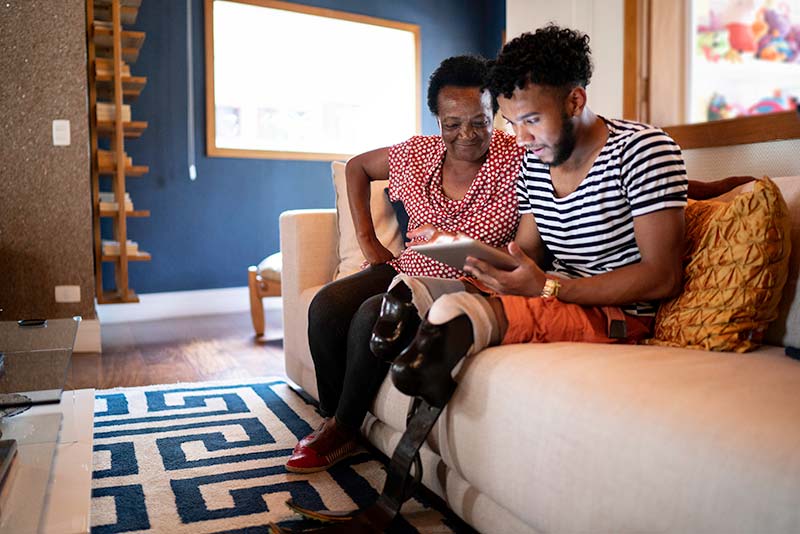More and more people are encountering Alzheimer’s in their personal lives, so caregivers and seniors must know the signs to be proactive about treatment. According to the Alzheimer’s Association, over 6 million Americans are living with Alzheimer’s; by 2050, this number is projected to rise to nearly 13 million. Their study found that 1 in 3 seniors dies with Alzheimer’s or another dementia, which is more than breast cancer and prostate cancer combined (wow!)
Because Special Touch Home Care helps loved ones support many senior patients, we know how important it is to identify the signs of Alzheimer’s.
Here are three of the early signs to keep an eye out for:

1. When Memory Loss Impacts Daily Life
While forgetting certain appointments or recently learned information can seem normal, when it starts to occur more often, it can be a sign of developing dementia. In this early stage, people beginning to deal with this problem might remember the information later, but it can start disrupting their daily lives.
This can include forgetting events and dates, needing reminders, or relying on family members to remember important information.
2. Challenges with Solving Problems
Challenges in solving problems or planning can also be a sign of Alzheimer’s. This is especially true with calculating and dealing with numbers or following a plan of action in a specific sequence. Examples include having trouble following a recipe or keeping track of monthly bills.
This also might mean taking more time to solve problems and complete tasks. Caregivers may need to help those struggling with these types of functions.
3. Changes in Mood and Personality
Sudden changes in mood or personality can also be a concerning sign. This can include becoming angry, confused, depressed, fearful, or anxious. To someone other than the individual experiencing these feelings, it may appear that they are suddenly becoming upset. However, to make this less traumatic, they must have a caretaker who can identify when their loved one is struggling and exhibit patience, kindness, and understanding.
Interested in Special Touch Home Care?
While these may seem subtle, keep an eye out for these signs to ensure your loved ones get the care they need early on. These are just a few signs, but they are a great starting point to help you monitor your cognitive health and your loved ones.
If you have someone in your life interested in in-home care or if you’re interested in receiving care at home yourself, we hope you reach out to us!
Special Touch Home Care helps loved ones get the care they need to live comfortably and independently in the comfort of their own home.
Contact us or schedule a call with a Care Representative today!


WE’RE HERE TO HELP
Request Your Free Consultation
Fill out this form for a completely FREE consultation with a care representative.
The Most “Liked” & Highest Reviewed In-Home Care Company in New York
Our team is here to make your life easier when you need help. That’s why our customers give us high ★★★★★ satisfaction ratings.
Resources And Blog Posts





